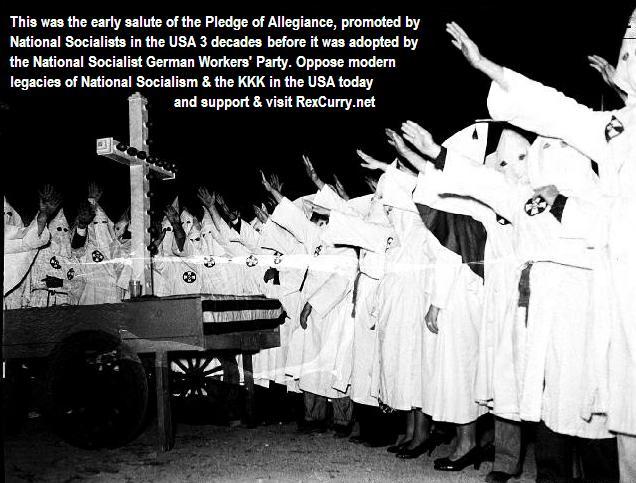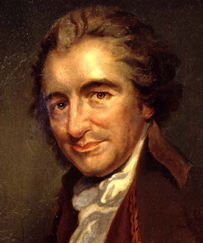
http://blog.oregonlive.com/o_impact/2009/02/KKK%20march%20in%20Ashland%201920s.jpg
http://www.whiteknightseuropa.de/image.jpg
http://www.usvetdsp.com/dec07/gifs/kkk-with-us-flags.jpg
The KKK's original roots date back to 1866. Confederate veterans organized the KKK hoping to prevent former slaves from exercising their newly acquired rights, but within 3 years the veterans felt their work was done and the KKK took a 49 year brake.
After the KKK's long brake they made their come back , and this time they weren't planning to stay for only three years. The KKK came back and wanted to let everyone know they were here and that they wanted to have a huge impact on American beliefs, rights, and society. Their return was in the fall of 1915 , in Atlanta,Georgia. William Joseph Simmons, a former preacher, led a dozen men up to Stone Mountain where he started burning a pine cross. While the cross was burning and William holding his Bible, he led the men in a vow of allegiance to the Knights of the KKK. This ceremony would be the start of an organization that would spread across the nation trying to do everything possible to gain power. In Texas, the KKK elected one of their members to the U.S. Senate, in Oregon a member was governor, in Colorado they won the senate race and in Indiana one of them became governor and 2 became senators. This proves to us that the KKK was serious and they had a lot of power in their hands.
SWEEPING the NATION
- Edward Young Clarke and Elizabeth Tyler, two enterprising promoters, persuaded William to pay them 1/4 of the $10 each new Klan member paid.
- Klan membership sky rocketed to 4 million by 1924.
- Clarke and Tyler urged their 200 recruiters to fill their rhetoric with phrases like "pure womanhood," "100 percent Americans," and "the tenets of the Christian religion", the Klan wanted to let their members know that the country was being overrun by enemies within.
- KKK recruiters promised to provide betters schools and improve law enforcement.
THE NEW YORK WORLD HURLS a HAND GRENADE
- The first journalistic crusade in defiance of the Klan was an expose in the newspaper NEW YORK WORLD.
- The opening article characterized the Klan's growth as a financial scam that had stolen $40 million in initiation fees and Klan regalia.
- One article recorded the names and addresses of 214 Klan recruiters,which was very similar to an FBI most wanted list.
- The WORLD published another story in which there was a 1919 raid on a house of prostitution in which Tyler and Clarke were found on the same bed and charged with disorderly conduct.
- The WORLD editors later found out that their brilliant plan to embarrass and destroy the KKK had backfired.
- The WORLD gave the Klan free publicity and informed potential members of the Klan's acts of bigotry and violence and it also published a copy of the Klan's application form.
THE COMMERCIAL APPEAL in HAND-to-HAND COMBAT
- The next Klan vs newspaper battle would take place in Memphis in 1923, where KKK membership exceeded 10,000, against the city's major newspaper, the COMMERCIAL APPEAL.
- The editorial page of this newspaper condemned the Klan's use of vigilante violence against African-Americans, Catholics, and Jews.
- This newspaper included many cartoons against the Klan, portraying them as cowards and unAmerican.
- The Commercial Appeal played a key role in the 1923 Memphis elections.
- Mayor Rowlett Paine defeated the hooded society's nominee, W. Joe Wood.
THE MONTGOMERY ADVERTISER WAGES WAR
- Editor Grover Cleveland Hall wanted to encourage a state law to be passed that prohibited people from wearing masks and disguises in public places and make it a felony for men that were disguised to attack citizens of Alabama. Hall wanted this law to be passed because of the KKK's violent crimes of physical punishment to people just because of their skin color or religion and in some cases just because of their gambling and drinking habits.
- Progressive representatives from both houses introduced tough anti-mask bills outlawing masks and robes like the ones used by KKKers, stipulating that masked floggers would be tried as felons.
As we can see the KKK had alot of power in their hands, having member occupate Senate seats and form a part of the legislature. But it was proved to us that journalism is even more powerful and helped stopped the KKK's rise to power. Thanks to 3 big newspapers: MONTGOMERY ADVERTISER, COMMERCIAL APPEAL, and NEW YORK WORLD the Klan was stopped and defeated and we can thank journalism for this.








